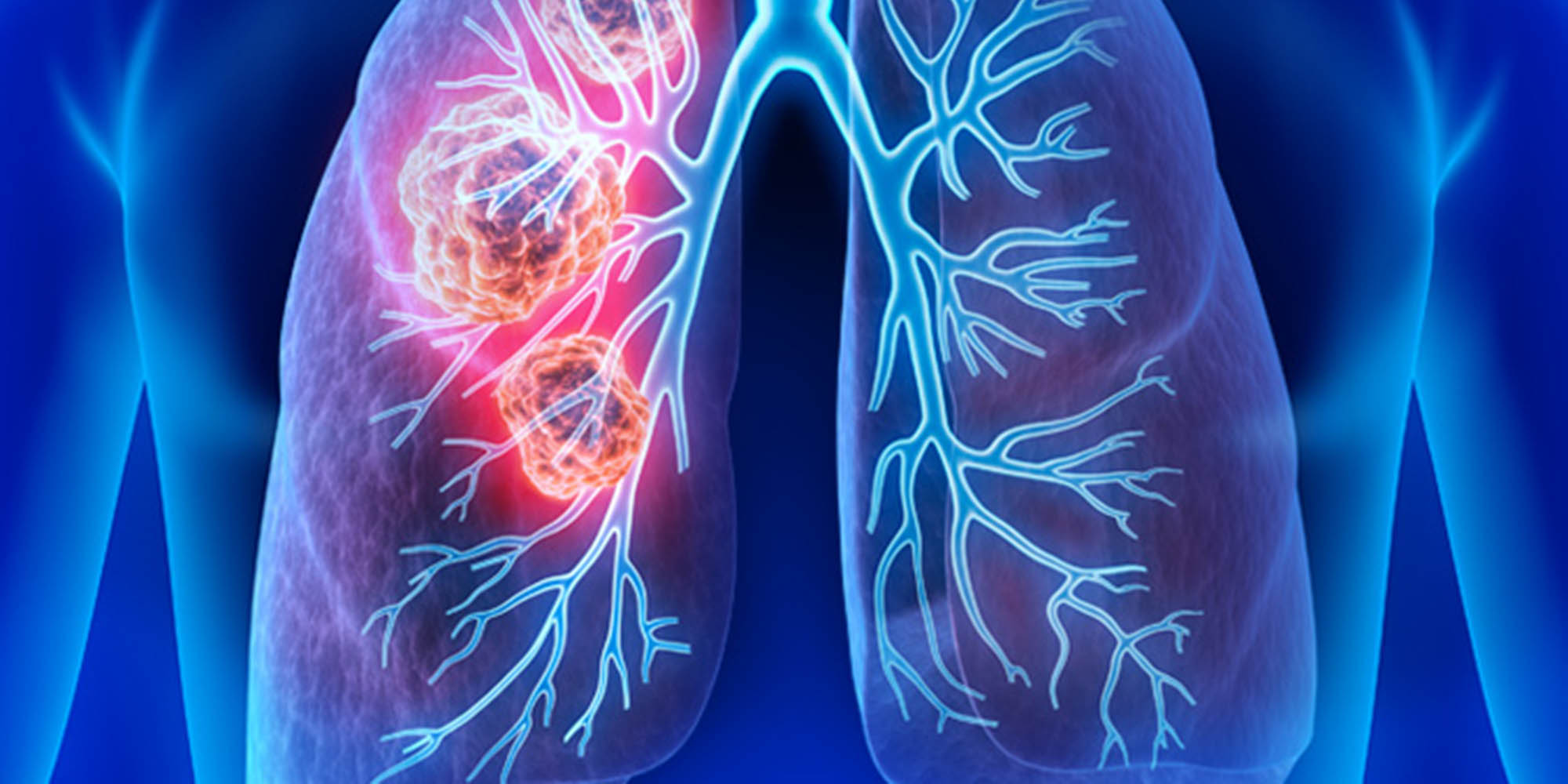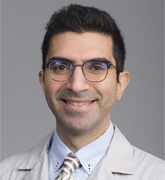Lung Cancer Screening: Early Detection Can Save Your Life
November 7, 2024
Categories: Lung Cancer, Cancer Care
 By Zaid Abdelsattar, MD, Thoracic Surgery
By Zaid Abdelsattar, MD, Thoracic Surgery
Lung cancer is the most common cause of cancer deaths in the U.S. According to the National Cancer Institute, nearly 130,000 people are estimated to die from the disease this year.
On average, only about 25% of people diagnosed with lung cancer survive five years or more. This is because most cases are caught late, after symptoms develop. Though the statistics are alarming, it’s important to understand that lung cancer can be highly treatable when caught early.
Lung cancer screening can detect early signs of lung cancer, before you have symptoms. If you are at risk of developing lung cancer, screening greatly increases your chance of survival.
Lung cancer screening is safe, quick and noninvasive. Most insurances companies cover lung cancer screening.
At Loyola Medicine, if you are uninsured or your insurance doesn’t cover the test, you pay a low, fixed cost for lung cancer screening. For details on lung cancer screening costs, please call 888-584-7888.
Why is early detection of lung cancer important?
Most people with lung cancer don’t develop symptoms until later in the disease. By that time, the cancer has grown and spread. This delay decreases the chance of survival.
When doctors find lung cancer before it spreads, they can cure cancer with little impact on a person’s quality of life.
Who should be screened for lung cancer?
Doctors recommend yearly lung cancer screening for people who:
- Are between 50 and 80 years old
- Have a smoking history of at least 20 pack-years (this is the average number of packs smoked per day times the number of years smoked)
- Currently smoke or have quit smoking within the past 15 years
Most insurances cover lung cancer screening, though some may have slightly different criteria for who qualifies. To find out if you are covered, check with your insurance company.
Lung cancer screening: What to expect
You will receive a low-dose CT scan. CT imaging uses X-rays to create a detailed 3D image of your lung. “Low dose” refers to the fact that it uses about 80% less radiation than a normal CT scan to capture the image.
The CT scanner is a large machine shaped like a donut. You lie on your back and the donut circles around you. The scan only takes about 10 minutes.
You usually receive the results within a day. If you currently smoke, the Loyola team may refer you to the Illinois Tobacco Quitline or 1-866-QUIT-YES.
Interpreting the lung cancer screening test
A radiologist, who is a specialist trained in medical imaging, reviews all CT scans. A negative result means the scan did not reveal any areas of concern. In this case, we recommend testing again in a year.
The radiologist may see a spot or shadow on the CT scan. These are called lung nodules. Most lung nodules are noncancerous scar tissue, but some are a sign of early cancer.
At Loyola Medicine, a team of experts in lung cancer screening will then evaluate the scan and determine the next steps. The team includes these doctors:
- Thoracic surgeon — performs surgery on the lungs and other organs in the chest
- Pulmonologist — specializes in the respiratory system and conditions related to breathing
- Medical oncologist — specializes in the medical management of lung cancer
What if your Low-Dose CT scan is abnormal?
If your low-dose CT scan is abnormal, your doctor may recommend:
- Watchful waiting: You will have a repeat scan in a few months to see if the lung nodule is growing.
- Diagnostic imaging: These tests can show if a lung nodule is cancerous and may include a diagnostic CT scan, X-ray, MRI or PET scan.
- Needle or Surgical Biopsy: A biopsy is a small tissue sample a pathologist examines under a microscope to look for cancerous cells. Doctors usually collect the tissue sample using a needle, guided to the correct location by CT imaging.
Surgery after abnormal lung cancer screening
If you are diagnosed with lung cancer, your doctor will likely recommend surgery.
Loyola thoracic surgeons are experts in minimally invasive surgery and perform over 75% of lung cancer surgeries as robotic procedures.
The robotic approach uses very small incisions and allows surgeons to precisely remove the tumor and leave the rest of the lung intact.
Patients who undergo robotic surgery have:
- Shorter hospital stays
- Less pain
- Faster recovery
After surgery, many patients with early lung cancer, like Marie Pantone, are cured and don’t need any other treatments.
Lung cancer screening at Loyola
Today, only about 6% of people who meet the lung cancer screening guidelines get screened. This low rate means doctors are not seeing people with lung cancer until it is often too late.
Lung cancer screening can change this trend. Loyola’s lung cancer screening program provides low-cost screening at facilities located throughout the west side of Chicago, including:
To make an appointment or learn if you may need a lung cancer screening, call 708-216-1260.
Zaid Abdelsattar, MD, is the chief of thoracic surgery at Loyola Medicine. He specializes in minimally invasive thoracic oncology and lung transplant surgery and has particular expertise in state-of-the-art robotic technology and techniques. Dr. Abdelsattar is nationally recognized for his research on improving the national delivery and quality of cancer care to all patients. Along with his academic pursuits, Dr. Abdelsattar is passionate about teaching and mentoring medical school students, residents and fellows. He serves as the associate program director of the thoracic surgery fellowship program at Loyola University Medical Center.
Dr. Abdelsattar earned his medical degree from the University of Jordan. He completed his residency and fellowship training at the Mayo Clinic, where he earned the prestigious O.T. Clagett Award for Outstanding Clinical and Academic Performance.
Book an appointment today to see Dr. Abdelsattar or another Loyola specialist by self-scheduling an in-person or virtual appointment using myLoyola.
